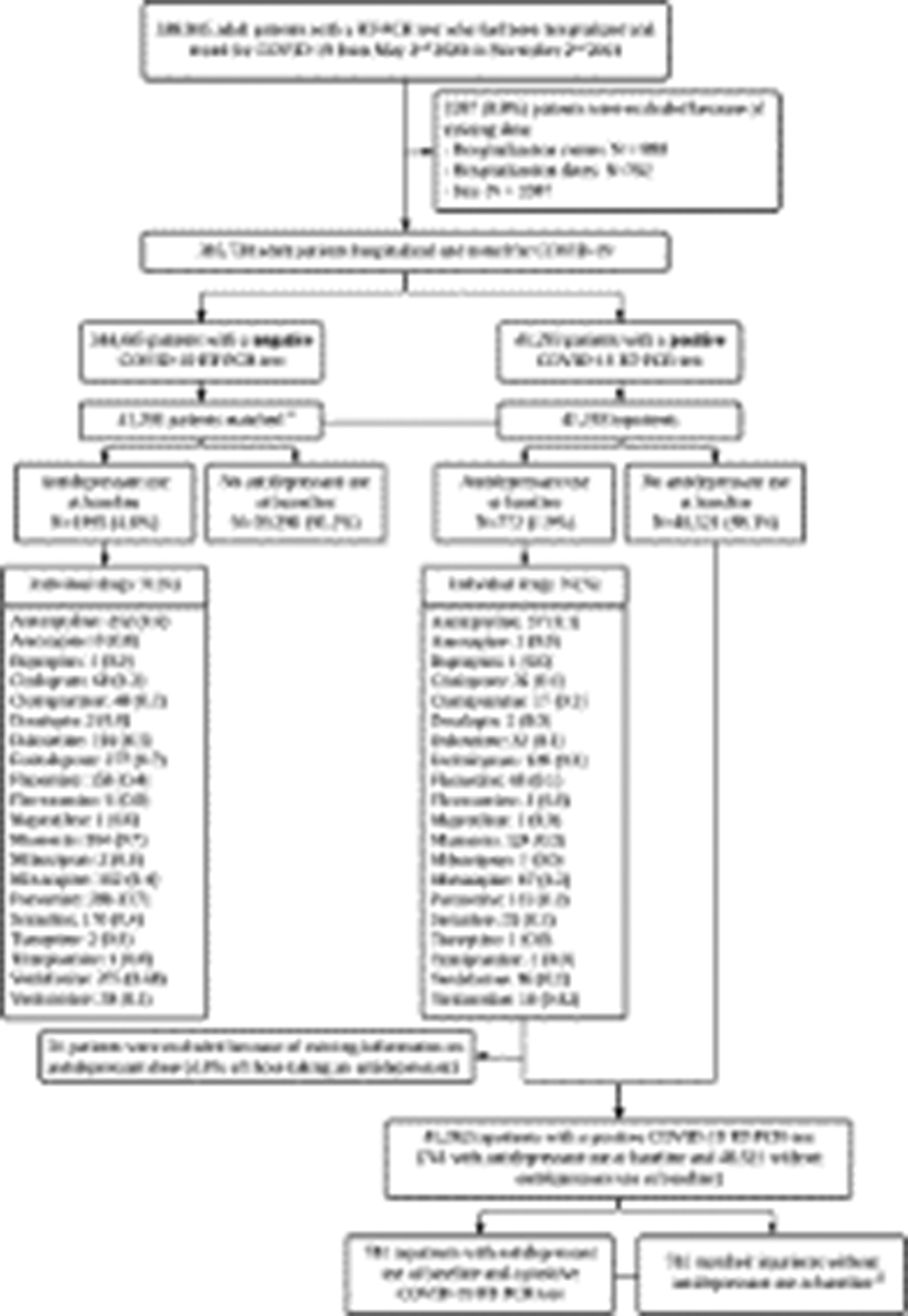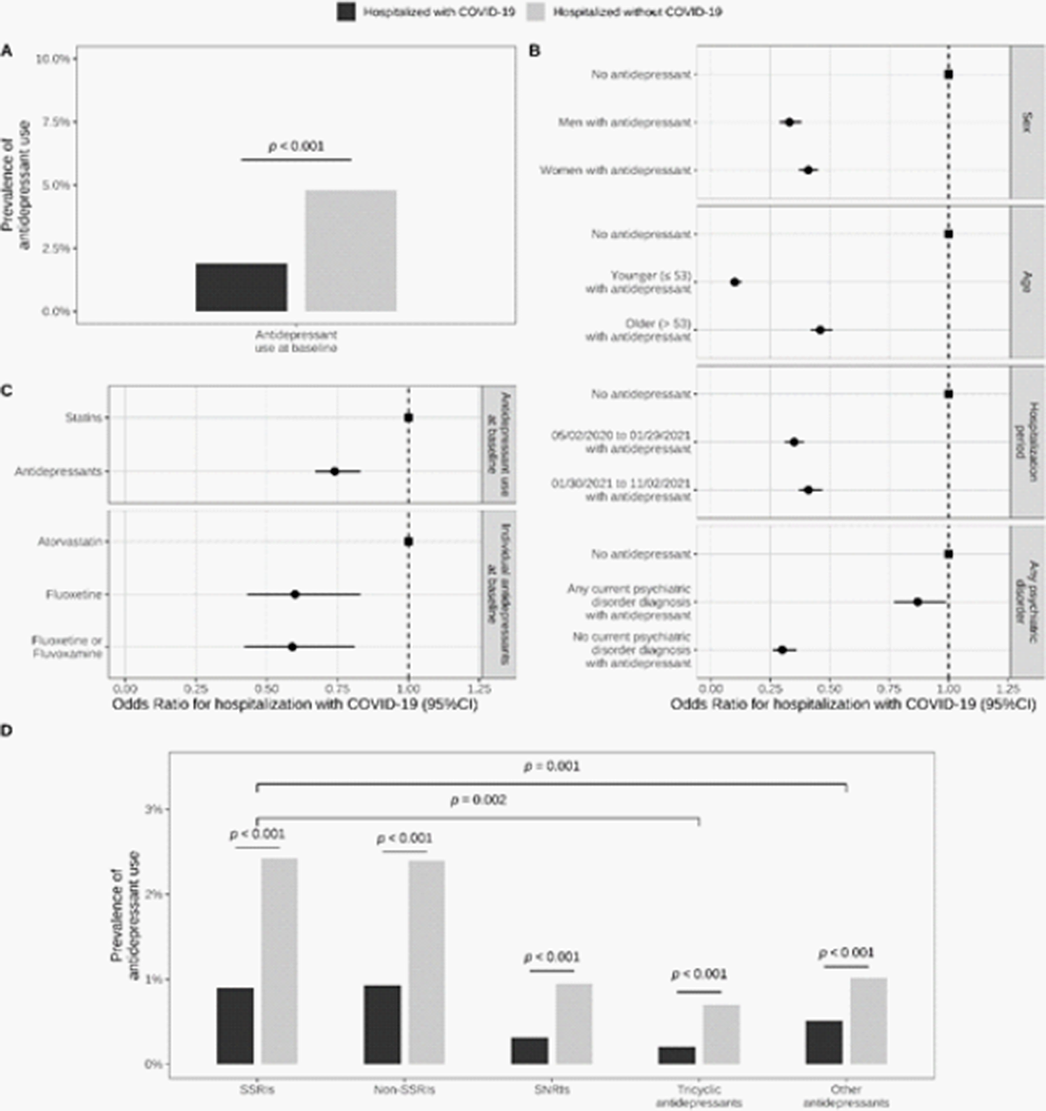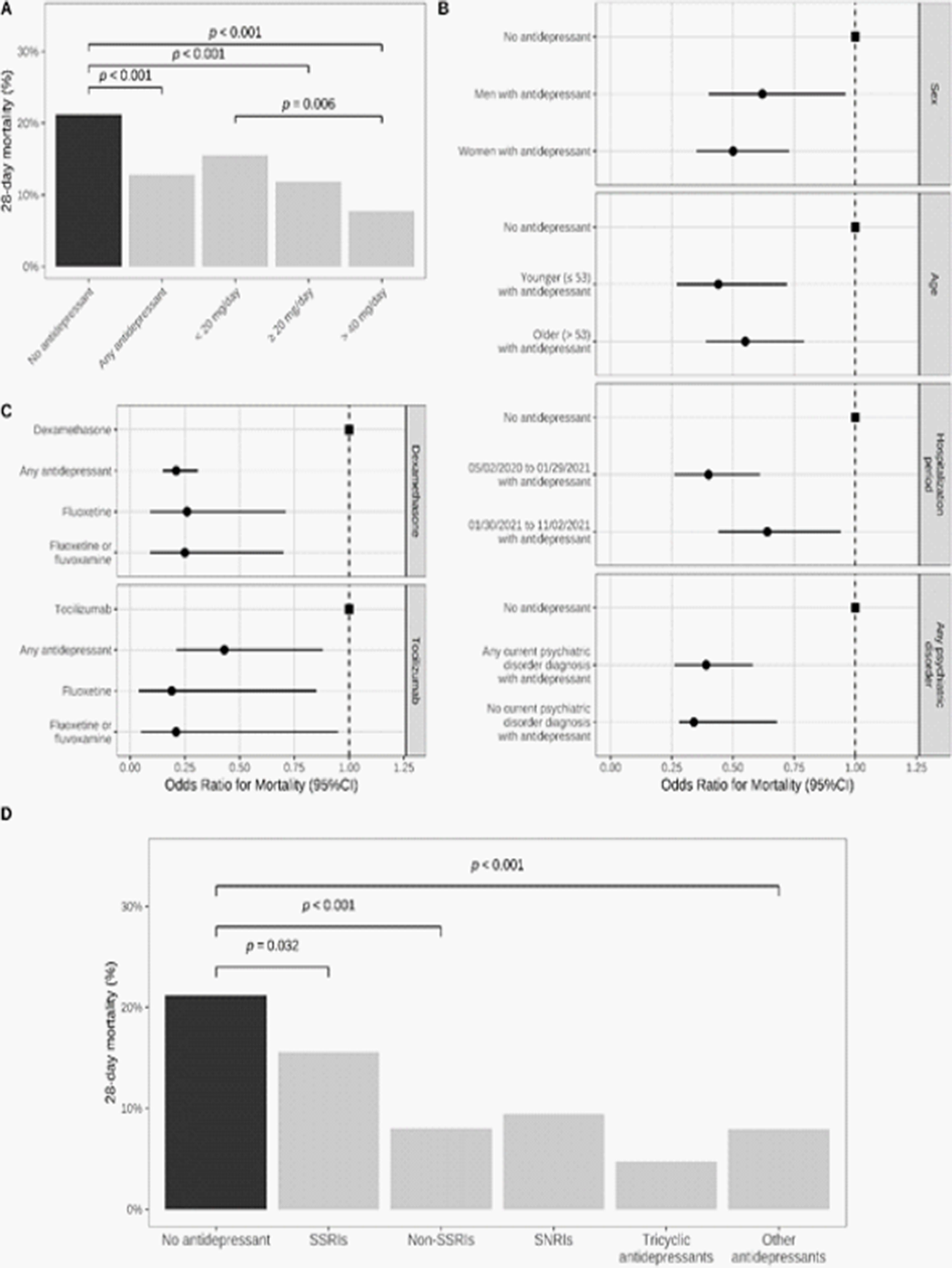No CrossRef data available.
Article contents
Antidepressant Use and Its Association with 28-Day Mortality in Inpatients with SARS-CoV-2: Support for the FIASMA Model against COVID-19
Published online by Cambridge University Press: 19 July 2023
Abstract
To reduce Coronavirus Disease 2019 (COVID-19)-related mortality and morbidity, widely available oral COVID-19 treatments are urgently needed. Certain antidepressants, such as fluvoxamine or fluoxetine, may be beneficial against COVID-19.
The main objective was two-fold: (i) to test the hypothesis that the prevalence of antidepressant use in patients hospitalized with COVID-19 would be lower than in patients with similar characteristics hospitalized without COVID-19, and (ii) to examine, among patients hospitalized with COVID-19, whether antidepressant use is associated with reduced 28-day mortality. Our secondary aim was to examine whether this potential association could only concern specific antidepressant classes or molecules, is dose-dependent, and/or only observed beyond a certain dose threshold.
We included 388,945 adult inpatients who tested positive for SARS-CoV-2 at 36 AP–HP (Assistance Publique–Hôpitaux de Paris) hospitals from 2 May 2020 to 2 November 2021. We compared the prevalence of antidepressant use at admission in a 1:1 ratio matched analytic sample with and without COVID-19 (N = 82,586), and assessed its association with 28-day all-cause mortality in a 1:1 ratio matched analytic sample of COVID-19 inpatients with and without antidepressant use at admission (N = 1482) (Figure 1).
Antidepressant use was significantly less prevalent in inpatients with COVID-19 than in a matched control group of inpatients without COVID-19 (1.9% versus 4.8%; Odds Ratio (OR) = 0.38; 95%CI = 0.35–0.41, p < 0.001) (Figure 2). Antidepressant use was significantly associated with reduced 28-day mortality among COVID-19 inpatients (12.8% versus 21.2%; OR = 0.55; 95%CI = 0.41–0.72, p < 0.001), particularly at daily doses of at least 40 mg fluoxetine equivalents (Figure 3). Antidepressants with high FIASMA (Functional Inhibitors of Acid Sphingomyelinase) activity seem to drive both associations.
Image:

Image 2:

Image 3:

Antidepressant use is associated with a reduced likelihood of hospitalization in patients infected with SARS-CoV-2 and with a reduced risk of death in patients hospitalized with COVID-19. These associations were stronger for molecules with high FIASMA activity. These findings posit that prospective interventional studies of antidepressants with the highest FIASMA activity may be appropriate to help identify variant-agnostic, affordable, and scalable interventions for outpatient and inpatient therapy of COVID-19.
None Declared
- Type
- Abstract
- Information
- European Psychiatry , Volume 66 , Special Issue S1: Abstracts of the 31st European Congress of Psychiatry , March 2023 , pp. S118 - S119
- Creative Commons
- This is an Open Access article, distributed under the terms of the Creative Commons Attribution licence (https://creativecommons.org/licenses/by/4.0/), which permits unrestricted re-use, distribution, and reproduction in any medium, provided the original work is properly cited.
- Copyright
- © The Author(s), 2023. Published by Cambridge University Press on behalf of the European Psychiatric Association





Comments
No Comments have been published for this article.